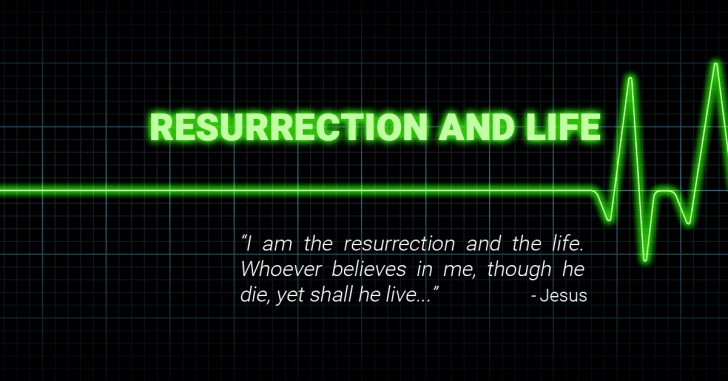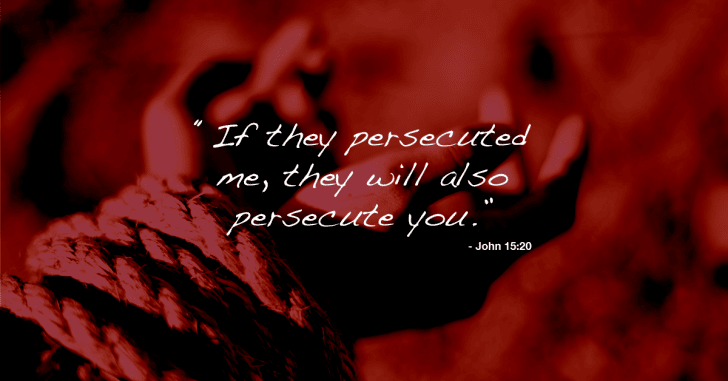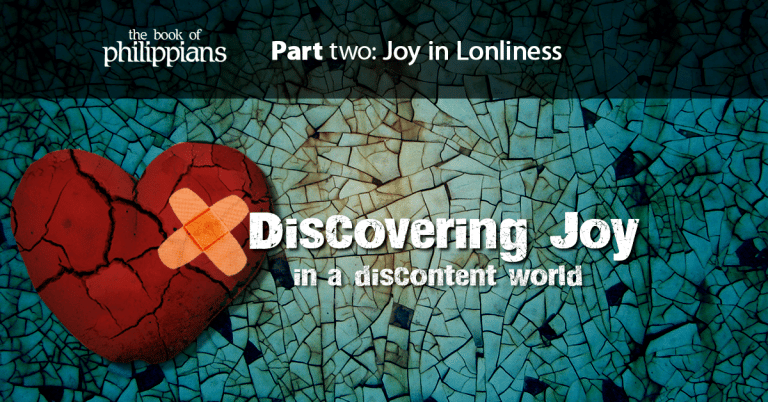John 11:17-44 | Resurrection And The Life
[efstoggles class=”yourcustomclass”]
[efstoggle active=”” title=”Click here for today’s text”]
17 Now when Jesus came, he found that Lazarus had already been in the tomb four days.18 Bethany was near Jerusalem, about two miles off, 19 and many of the Jews had come to Martha and Mary to console them concerning their brother. 20 So when Martha heard that Jesus was coming, she went and met him, but Mary remained seated in the house.21 Martha said to Jesus, “Lord, if you had been here, my brother would not have died.22 But even now I know that whatever you ask from God, God will give you.” 23 Jesus said to her, “Your brother will rise again.” 24 Martha said to him, “I know that he will rise again in the resurrection on the last day.” 25 Jesus said to her, “I am the resurrection and the life. Whoever believes in me, though he die, yet shall he live, 26 and everyone who lives and believes in me shall never die. Do you believe this?” 27 She said to him, “Yes, Lord; I believe that you are the Christ, the Son of God, who is coming into the world.”
28 When she had said this, she went and called her sister Mary, saying in private, “The Teacher is here and is calling for you.” 29 And when she heard it, she rose quickly and went to him. 30 Now Jesus had not yet come into the village, but was still in the place where Martha had met him. 31 When the Jews who were with her in the house, consoling her, saw Mary rise quickly and go out, they followed her, supposing that she was going to the tomb to weep there. 32 Now when Mary came to where Jesus was and saw him, she fell at his feet, saying to him, “Lord, if you had been here, my brother would not have died.” 33 When Jesus saw her weeping, and the Jews who had come with her also weeping, he was deeply moved in his spirit and greatly troubled. 34 And he said, “Where have you laid him?” They said to him, “Lord, come and see.” 35 Jesus wept. 36 So the Jews said, “See how he loved him!” 37 But some of them said, “Could not he who opened the eyes of the blind man also have kept this man from dying?”
38 Then Jesus, deeply moved again, came to the tomb. It was a cave, and a stone lay against it. 39 Jesus said, “Take away the stone.” Martha, the sister of the dead man, said to him, “Lord, by this time there will be an odor, for he has been dead four days.” 40 Jesus said to her, “Did I not tell you that if you believed you would see the glory of God?” 41 So they took away the stone. And Jesus lifted up his eyes and said, “Father, I thank you that you have heard me. 42 I knew that you always hear me, but I said this on account of the people standing around, that they may believe that you sent me.” 43 When he had said these things, he cried out with a loud voice, “Lazarus, come out.” 44 The man who had died came out, his hands and feet bound with linen strips, and his face wrapped with a cloth. Jesus said to them, “Unbind him, and let him go.” (John 11:17-44)
[/efstoggle]
[/efstoggles]
Recap:
Last week we considered the unexplainable kind of love Jesus had for a particular family. He was several days journey away from Jerusalem and got word that a friend, Lazarus, was ill. It says that he loved this sick man and his sisters. Therefore he stayed two days longer where he was. This prolonging assured Lazarus’ death. This doesn’t make sense from a mere human perspective, but Jesus has divine perspective that we do not obtain. Eventually, Jesus tells his disciples that Lazarus has died and they are going back to Bethany, near Jerusalem. The disciples tried to talk Jesus out of going because there were a lot of people there that wanted, and actually attempted, to stone him. Never the less, Jesus persisted and the disciples accepted their fate and went along.
Death is always tragic
Death is always a tragedy. Even if someone lived to a ripe old age, it’s still tragic when they die. If an unborn infant dies, it’s still tragic. Whether a person is a loved and admired being or an unlikable soul, one’s death is never all positive. It’s uncomfortable.
Now when Jesus came, he found that Lazarus had already been in the tomb four days. Bethany was near Jerusalem, about two miles off, and many of the Jews had come to Martha and Mary to console them concerning their brother. (John 11:17-19)
In the case of those we love, death is especially difficult to embrace. There is always a sense of loss and separation that leads to grief. When we experience loss as a result of death, it wounds us emotionally – it shakes our faith.
Things we conclude about God because of loss:
When we experience this kind of loss, we often question God. We ask things like: “Where were you God?” “Why didn’t you intervene.” ” I prayed and you didn’t answer.” We have questions and unanswered questions lead to question things about God.
He must be far off
Look at verses 20&21: So when Martha heard that Jesus was coming, she went and met him, but Mary remained seated in the house. Martha said to Jesus, “Lord, if you had been here, my brother would not have died. (John 11:20-21) Martha’s had concluded that since she couldn’t see Jesus, he must have been far away. When we pray and don’t get the result wo hope for we too conclude that God must be far away. Both sisters had the same reaction to Jesus. Verse 32: Now when Mary came to where Jesus was and saw him, she fell at his feet, saying to him, “Lord, if you had been here, my brother would not have died.” (John 11:32)
When we experience pain we blame. That’s what these sisters did. They blamed jesus for their brothers death. They sent a messenger to retrieve him, but he didn’t come and their brother died. We’re no different today. God, if you were near, you could have saved my dad. God, if you were near, you could have saved our baby. God, you must be far off.
He must not be able
Friday night, Chandra and I celebrated our 15th anniversary at the Sundance outdoor amphitheatre. We watched the Wizard of Oz. Toward the end of the play, Dorothy and her incomplete companions are disheartened when they discover that the great Wizard of Oz was nothing more than a powerless man behind a curtain. He was incapable of actually granting the things that could make them complete.
Have you ever wondered if God was really able? Maybe he’s just an illusion? If he really does exist, how come he doesn’t have the power to fix my problem? I think it’s a pretty normal reaction to question the ability of God when we experience the kind of pain associated with the loss of a loved one.
He must not care
another thing we conclude is that Jesus just doesn’t care. If he really cared, why he doesn’t save all the starving kids in Africa? I even saw a facebook comment like this related to Cecil the lion. A Christian person made a comment asking why people are more concerned about about Cecil the lion than about starving children in Africa. The person commented and said, “Why doesn’t your omnipotent imaginary God do something about the starving children himself if he cares so much about them?”
We come to the same conclusions. Some of these people came to the same conclusion. Verse 36&37: So the Jews said, “See how he loved him!” But some of them said, “Could not he who opened the eyes of the blind man also have kept this man from dying?” (John 11:37) They’re saying, if he really cared, he could have save Lazarus the same way he healed the blind man. He must not care.
What is true about Jesus?
He really does care
Does God really care about my mess? Does he really care about my loss? Yes! Yes, he really does care. “For God so loved the world, that he gave his only Son, that whoever believes in him should not perish but have eternal life.” (John 3:16) He really does care, he really does love us. He cares about us and loves us not because we are good enough to be loved, but because we are not. …God shows his love for us in that while we were still sinners, Christ died for us. (Romans 5:8)
Our Jesus is caring and compassionate – he really does care. Listen to his emotions as he related to Mary and Martha starting in verse 33: When Jesus saw her weeping, and the Jews who had come with her also weeping, he was deeply moved in his spirit and greatly troubled. And he said, “Where have you laid him?” They said to him, “Lord, come and see.” Jesus wept. So the Jews said, “See how he loved him!” Then Jesus, deeply moved again, came to the tomb. (John 11:33-36,38)
He sees your tears, he feels you loss, and he understands your pain. He sympathises with us in every way (Hebrews 4:15). He really does care. For I am sure that neither death nor life, nor angels nor rulers, nor things present nor things to come, nor powers, nor height nor depth, nor anything else in all creation, will be able to separate us from the love of God in Christ Jesus our Lord. (Romans 8:39-39)
He really is near
Martha and Mary perceived that because that because Jesus was not physically present that he was far off. We perceive that because we can’t see the hand of God in the moment that He must be far off, but he isn’t. Acts 17 tells us this: The God who made the world and everything in it, being Lord of heaven and earth, does not live in temples made by man, nor is he served by human hands, as though he needed anything, since he himself gives to all mankind life and breath and everything. And he made from one man every nation of mankind to live on all the face of the earth, having determined allotted periods and the boundaries of their dwelling place, that they should seek God, and perhaps feel their way toward him and find him. Yet he is actually not far from each one of us (Acts 17:26-27)
He is near, not far away. He has placed us in our specific space and in our specific moment in time that we might reach out for him and find him. He made us to find him. He’s not far from any of us. He doesn’t dwell in temples made by the hands of men, he’s everywhere and near to all.
He really is able
He is also able. He’s more than able. See, Jesus allowed the death of Lazarus in order that the Father and the Son be glorified. Now, Martha had a future picture of God’s power, but was missing the reality of who Jesus is. So, in Verse 24: Jesus said to her, “Your brother will rise again.” Martha said to him, “I know that he will rise again in the resurrection on the last day.” (John 11:23-24) In other words, I know there’s a time coming when God will raise the dead in the last day. It’s easy to see God’s power as a past thing or a future event, but not realize the power and authority of Jesus in the here and now.
Verse 25: Jesus said to her, “I am the resurrection and the life. Whoever believes in me, though he die, yet shall he live, and everyone who lives and believes in me shall never die. Do you believe this?” Martha sees the resurrection as a future event, which it is, but missed the fact that Jesus is the resurrection! Jesus is the remedy to death. He is life. There is no other way. His power is not a just a future event, his power is not just the past, his power is here and now.
When he had said these things, he cried out with a loud voice, “Lazarus, come out.” The man who had died came out, his hands and feet bound with linen strips, and his face wrapped with a cloth. Jesus said to them, “Unbind him, and let him go.” (John 11:344-45)
Last thoughts:
This is our Jesus, He really does care. He cares deeply and he cares personally. He is not far, but near. He’s placed us in this moment and in this place that we might find him and know him. He holds the power of the past, he holds the power over the future, and he has life-giving power for the present.
Jesus is the master of double meaning. We see this through the Gospel of John. This section of scripture is no different. Jesus has made it clear that apart from faith in him alone, we are dead in our sin. We need eternal life because if we die in our sin we will inherit eternal death. Jesus said in John 8:24, “I told you that you would die in your sins, for unless you believe that I am he you will die in your sins.” The reality is that any human attempt as a means of attaining eternal life will result in eternal death. Jesus has the power over physical death, but more importantly he has the power over spiritual death. He didn’t come to try to make bad people good, he came to dead people alive. That’s why John wrote this gospel. He said, “..but these are written so that you may believe that Jesus is the Christ, the Son of God, and that by believing you may have life in his name.” If you don’t have life, what do you have?
Jesus said to her, “I am the resurrection and the life. Whoever believes in me, though he die, yet shall he live, and everyone who lives and believes in me shall never die. Do you believe this?” (John 11:26-26)





